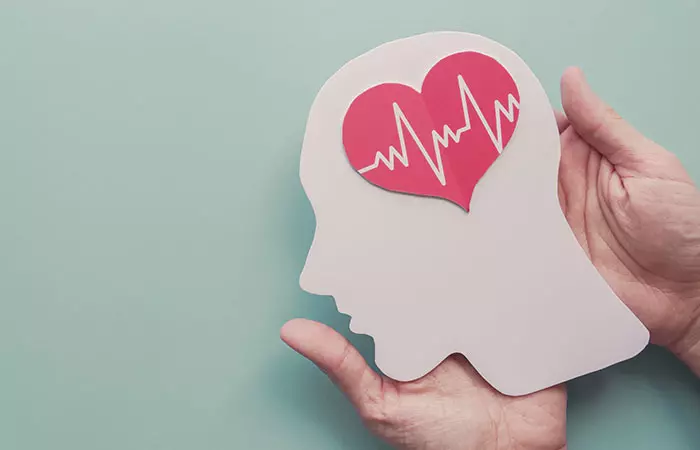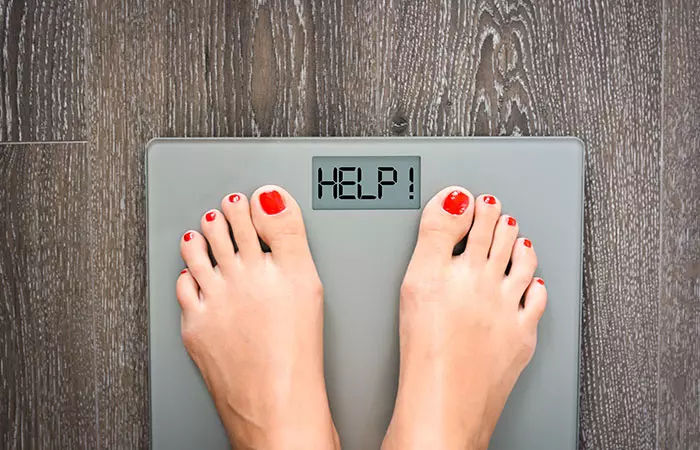What Happens To Our Bodies If We Don’t Get Enough Sleep

Image: Shutterstock
It’s no news that sleep is an essential part of our daily lives. Yet, in today’s busy world, sleep often takes a back seat. Many of us are guilty of underestimating the importance of a good night’s sleep, not realizing the impact it has on our health. In this article, we will delve into what happens to our bodies when we don’t get enough sleep. Read on to know them all.
In This Article
1. It May Lead To ‘Microsleeps’
Sleep deprivation can lead to alarming consequences like microsleep (1). This includes unintentional episodes of brief sleep that can occur unpredictably, sometimes during crucial tasks or activities. Microsleep can manifest at school, in the workplace, or even when you are behind the wheel!
2. It Can Age Your Skin
Lack of sleep can also take a toll on the appearance of your skin. During deep sleep, the body undergoes a restorative process, repairing and rejuvenating various bodily functions, including the skin. When sleep is insufficient, this regenerative cycle is disrupted, leading to adverse effects on the skin’s health. Chronic sleep deprivation can result in increased inflammation, reduced collagen production, and impaired skin barrier function (2). Over time, these factors can contribute to premature aging, causing fine lines, wrinkles, uneven skin tone, and a lackluster complexion.
3. It Can Affect Your Judging Skills
The consequences of sleep deprivation extend beyond physical and physiological aspects. When sleep is lacking, the brain’s ability to process information, assess risks, and make sound decisions becomes compromised. Sleep-deprived individuals often exhibit impaired judgment, diminished problem-solving skills, and increased impulsivity (3). This cognitive decline can manifest in various aspects of life, from everyday decision-making to more critical matters, potentially leading to accidents, errors in judgment, and poor choices.
4. It May Have A Negative Impact On Your Emotions
Sleep is a powerful regulator of our emotional well-being, and a lack of it can have significant negative effects on our emotions. Sleep deprivation can lead to heightened irritability, mood swings, and increased sensitivity to stressors (4). It disrupts the brain’s ability to regulate emotions effectively, making people more prone to anxiety, depression, and even outbursts of anger.
5. It May Lead To Hallucinations And Psychosis
The severe consequences of prolonged sleep deprivation can extend to hallucinations and even psychosis (5). When the brain is consistently deprived of the restorative rest it needs, it can malfunction in alarming ways. Hallucinations, which are false sensory perceptions, can occur, often involving vivid and disturbing experiences.
Furthermore, chronic sleep deprivation can lead to a state of psychosis, characterized by a disconnection from reality, impaired thinking, and profound disturbances in perception and behavior. These extreme outcomes underscore the critical importance of prioritizing sleep for mental health and cognitive function, as the consequences of sleeplessness can be not only distressing but also deeply destabilizing.
6. It May Harm Your Brain
During sleep, the brain undergoes a crucial process of memory consolidation, problem-solving, and neural repair. When sleep is insufficient, these vital functions are disrupted, leading to cognitive impairment. Lack of sleep can result in reduced attention span, decreased alertness, and difficulties in learning and retaining information (6).
Over time, chronic sleep deprivation has been linked to an increased risk of neurodegenerative conditions like Alzheimer’s disease. Additionally, it can elevate the levels of toxic proteins in the brain associated with such diseases. Thus, the toll that sleep deprivation takes on the brain serves as a compelling reminder of the imperative nature of prioritizing quality sleep for long-term cognitive health.
7. It May Make You Gain Weight
Sleep helps in regulating our body’s metabolism and appetite, and a lack of it can contribute to weight gain and obesity (7). Sleep deprivation disrupts the balance of hunger-regulating hormones, leading to an increase in the production of ghrelin and a decrease in leptin. As a result, sleep-deprived individuals often experience heightened cravings for calorie-dense, high-carbohydrate foods.
Moreover, fatigue from inadequate sleep can diminish motivation for physical activity, leading to weight gain. The cumulative effect of these factors makes it clear that prioritizing sufficient sleep is not only essential for overall health but also for maintaining a healthy weight and preventing obesity-related health issues.
Recognizing the importance of adequate sleep and prioritizing healthy sleep habits is crucial for maintaining overall health and a higher quality of life. By understanding the effects of sleep deprivation, we can make conscious efforts to prioritize rest and ensure that our bodies have the opportunity to rest, recharge, and function optimally.






























